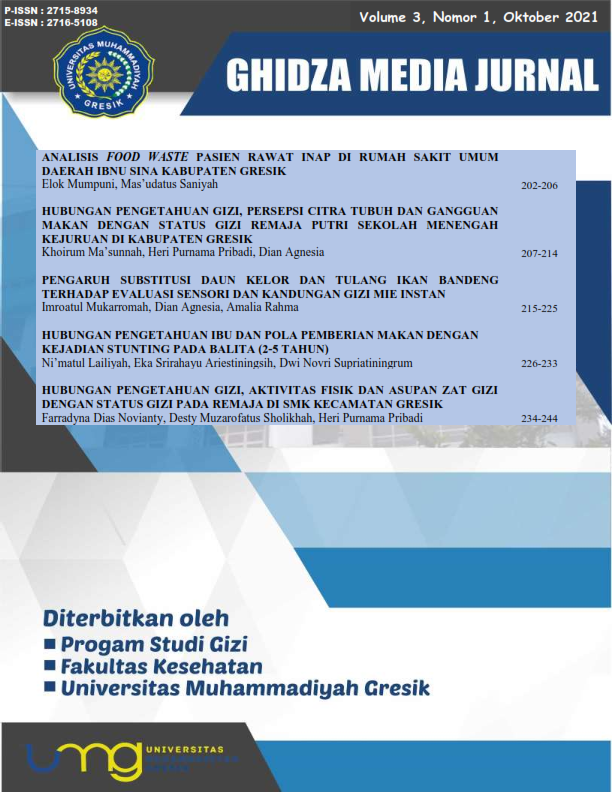HUBUNGAN PENGETAHUAN IBU DAN POLA PEMBERIAN MAKAN DENGAN KEJADIAN STUNTING PADA BALITA (2-5 TAHUN)
DOI:
https://doi.org/10.30587/ghidzamediajurnal.v3i1.3086Keywords:
knowledge, feeding, pattern, stuntingAbstract
Introduction : Stunting is a condition of growth disorders in children which is characterized by the child's height being lower or shorter (dwarf) than the standard age (TB/U). Stunting is a health problem that occurs when children do not get adequate nutrition for a long time (chronic). The purpose of this study was to determine the mother's knowledge about nutrition, to know the mother's feeding pattern for toddlers, and to prove the relationship between mother's knowledge and feeding patterns with the incidence of stunting and the incidence of stunting. Methods: The type of research used is analytic observational research/analytical survey. The research design used is cross-sectional. The population in this study were mothers who had toddlers in the working area of the Dapet Health Center as many as 90 people (mothers of toddlers). Respondents in this study were 74 respondents, which were taken by purposive sampling technique. The independent variables in this study were mother's knowledge and feeding patterns. The dependent variable in this study is stunting. Data was collected using a questionnaire and children's height was measured using a microtoise and converted into a standardized value (z-score). The data were analyzed using the Spearman Rank Correlation test with a significance of < 0.05. Results: The results showed that there was a significant relationship between mother's knowledge and the incidence of stunting in toddlers aged 2-5 years (p=0.003), and there was also a relationship between feeding patterns and the incidence of stunting in toddlers aged 2-5 years (P=0.013). Conclusion: There is a relationship between knowledge and feeding patterns with the incidence of stunting in toddlers aged 2-5 years in the working area of the Dapet Health Center.


